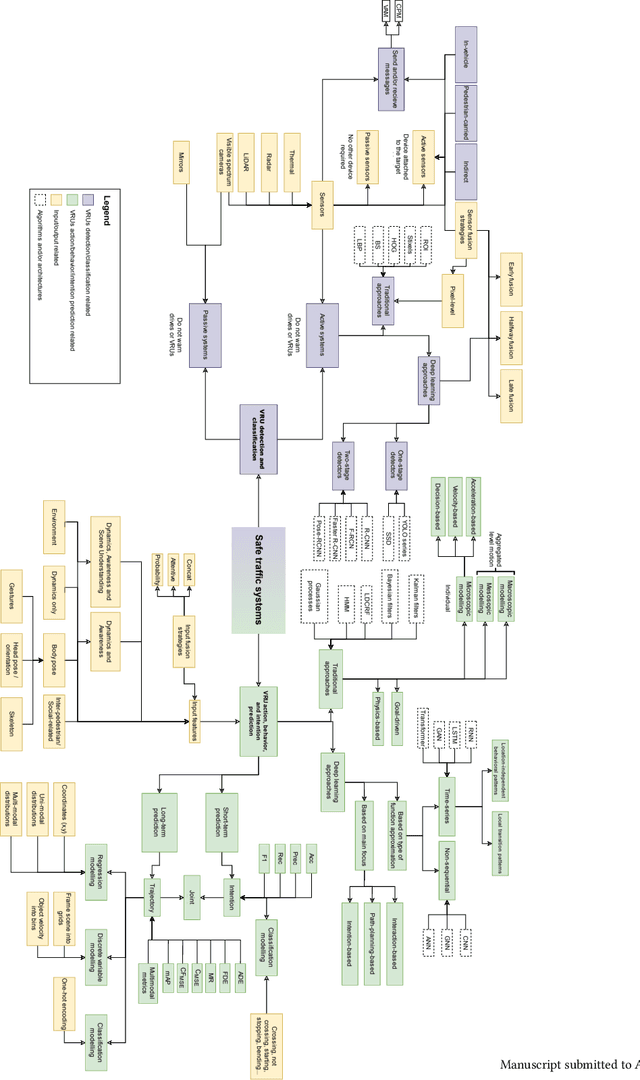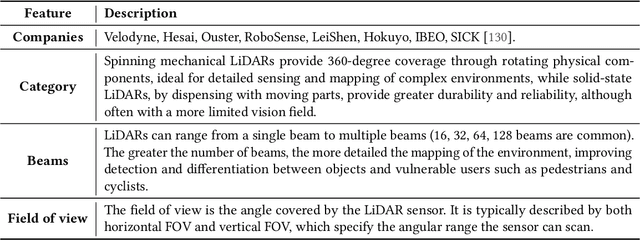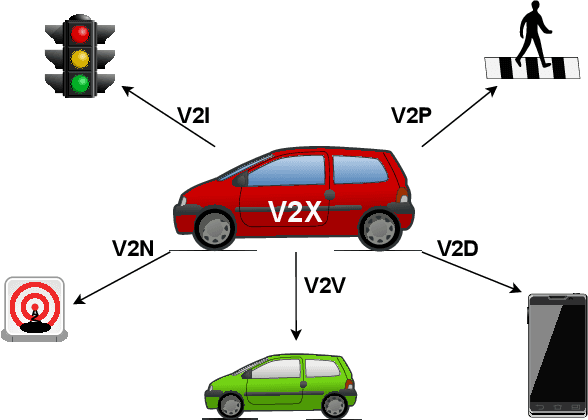Matheus V. Nogueira
Vulnerable Road User Detection and Safety Enhancement: A Comprehensive Survey
May 29, 2024



Abstract:Traffic incidents involving vulnerable road users (VRUs) constitute a significant proportion of global road accidents. Advances in traffic communication ecosystems, coupled with sophisticated signal processing and machine learning techniques, have facilitated the utilization of data from diverse sensors. Despite these advancements and the availability of extensive datasets, substantial progress is required to mitigate traffic casualties. This paper provides a comprehensive survey of state-of-the-art technologies and methodologies to enhance the safety of VRUs. The study delves into the communication networks between vehicles and VRUs, emphasizing the integration of advanced sensors and the availability of relevant datasets. It explores preprocessing techniques and data fusion methods to enhance sensor data quality. Furthermore, our study assesses critical simulation environments essential for developing and testing VRU safety systems. Our research also highlights recent advances in VRU detection and classification algorithms, addressing challenges such as variable environmental conditions. Additionally, we cover cutting-edge research in predicting VRU intentions and behaviors, which is crucial for proactive collision avoidance strategies. Through this survey, we aim to provide a comprehensive understanding of the current landscape of VRU safety technologies, identifying areas of progress and areas needing further research and development.
 Add to Chrome
Add to Chrome Add to Firefox
Add to Firefox Add to Edge
Add to Edge